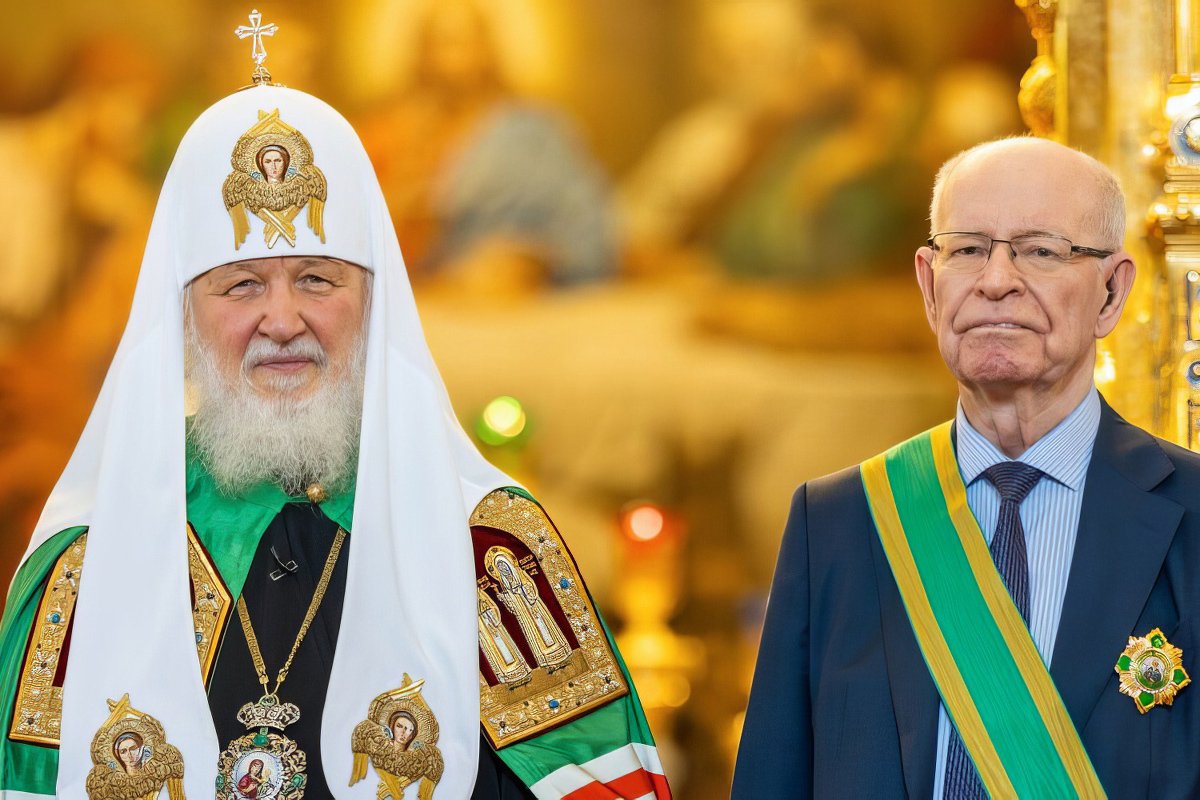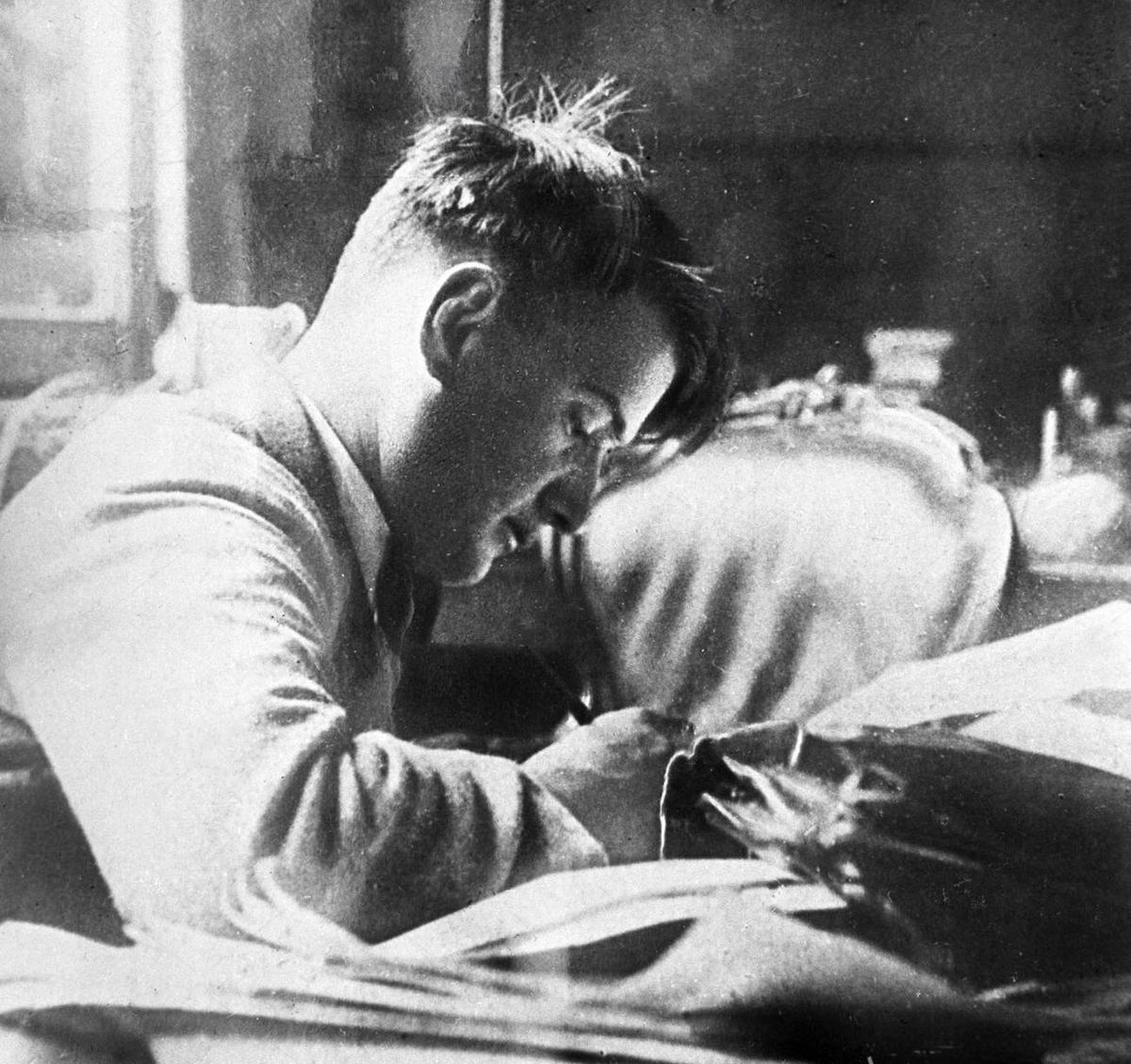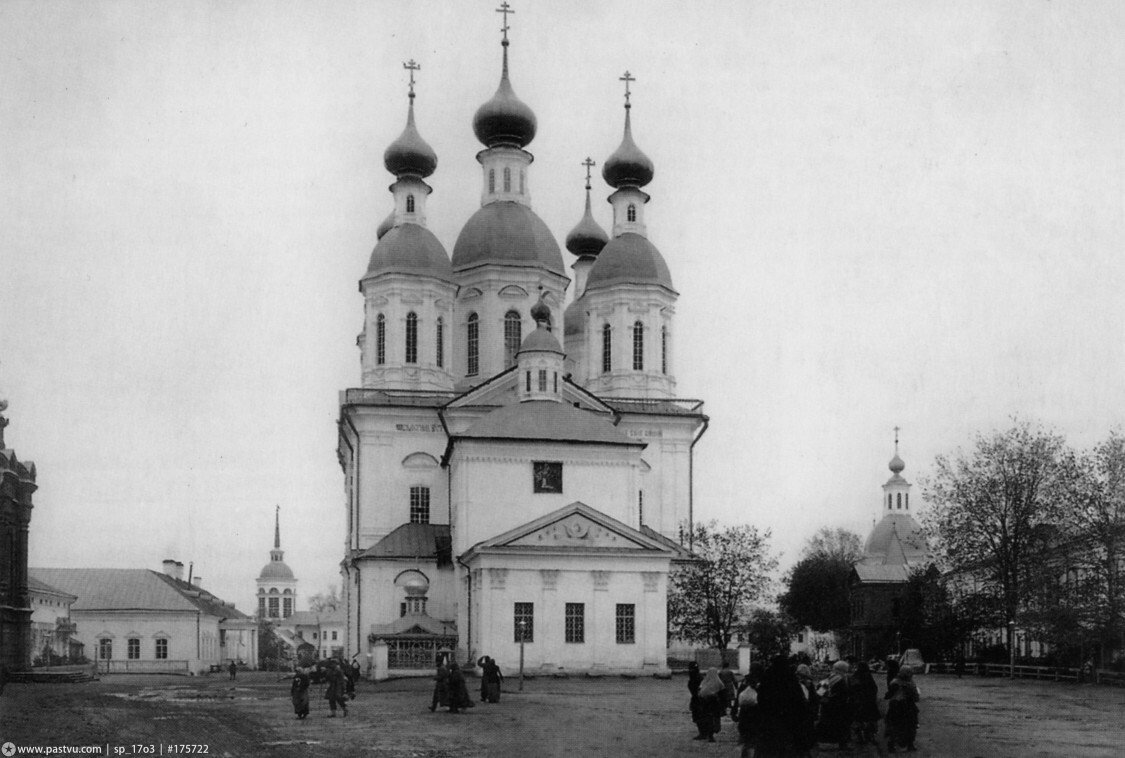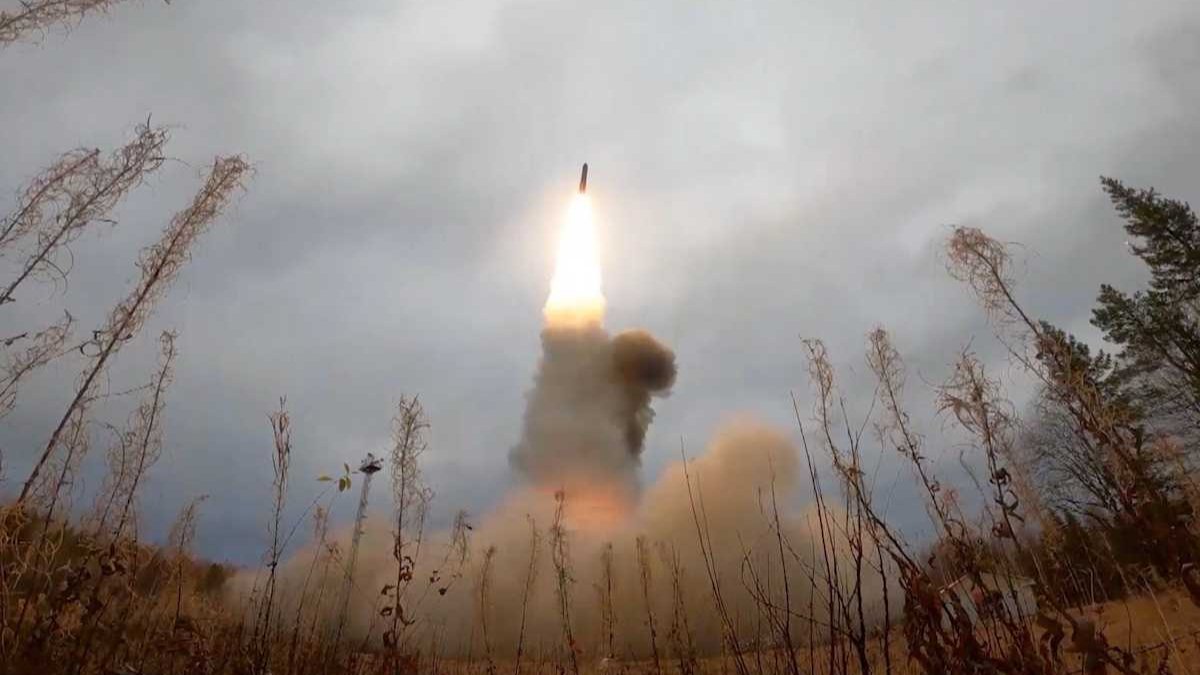While presenting one of the highest honours awarded by the Russian Orthodox Church (ROC) to physicist Radiy Ilkayev last week, its leader Patriarch Kirill mused that Russia had only managed to remain “independent and free” due to its possession of nuclear weapons.
While there was little new in Kirill’s restating of Russia’s nuclear orthodoxy doctrine, the context of his statement was noteworthy for its perfect fusion of the religious and the military-industrial, taking place as it did at the Svyato-Uspensky Monastery in the closed city of Sarov, which since the Soviet era has housed the Russian Federal Nuclear Centre (RFNC), and during a ceremony in which Kirill presented the Order of Sergius of Radonezh to the head of the RFNC.
After World War II, the monastery’s main cathedral and six of its other churches were destroyed to make way for the RFNC’s research needs. Sarov, which was known during the Soviet era as Gorky-130 and Arzamas-16, remains out-of-bounds to non-residents today (a “closed town” to use the Soviet term) — an ideal complement to monastic life even if it does impede pilgrimages by the faithful to a monastery synonymous with St. Seraphim, one of Russia’s most venerated saints.

Patriarch Kirill awards the Order of Sergius of Radonezh to physicist Radiy Ilkayev, head of the RFNC. Photo: nne.ru
Patriarch Kirill made good use of the symbolic coincidence that a leading nuclear research centre and the home of a beloved saint should happen to be in the same place, and named Seraphim the patron saint of the Soviet and Russian “nuclear shield”, something that would doubtless have been condemned as sacrilege only a decade ago, but which is nowadays celebrated as “divine providence”.
If Kirill is to be believed, St. Seraphim not only accepted but blessed the destruction of the churches in his monastery to facilitate the construction of weapons capable of destroying humanity — a threat that Russia’s leading politicians have grown very fond of tossing about lately.
This is significant as it shows how radically the ROC has evolved in the post-Soviet era, and during the 14-year tenure of Patriarch Kirill in particular. The Church has gone from attempting to hold Soviet godlessness to account for its desecration of so much of Russia’s ecclesiastical heritage to justifying and even sanctifying the actions of the Soviet authorities. It now preaches a postmodern amalgam of imperialism and communism, merging the sacred and the profane, the Gospels and Russia’s National Security Strategy.
In effect, Russia’s established Orthodox Christianity has been replaced by a new religion that’s nationalist and imperialist in nature, as well as pagan and even partly atheist, and one which idolises the imperial state, the armed forces, and the infallible national leader.

Igor Kurchatov, Soviet physicist and “father” of the Soviet atomic bomb, 1929. Photo: Wikimedia
Patriarch Kirill now assures us that the father of the Soviet nuclear bomb, Igor Kurchatov and his colleagues — none of whom were church goers and most of whom were atheists — worked under the direct guidance of St. Seraphim while perfecting their nuclear bomb in Sarov. Using such spurious logic, one might also claim that the horrifying torture and executions that took place at the Solovki prison camp (also set up in a monastery) did so with the blessing of local saints.
The Bolsheviks liked to set up their prisons and torture camps in monasteries — these mini-fortresses were easier to guard, and what went on behind their thick stone walls was not visible from the outside. These ascetic abodes were turned into their complete opposite — centres of satanic evil, suffering, and lawlessness. This cup has not passed from the famed Sarov monastery either.
However, now Patriarch Kirill teaches that all this was done “in the name of God” and, most importantly, for Russia’s freedom and greatness.
By endowing nuclear weapons with divine properties and crediting them alone with saving the entire Russian nation from destruction and enslavement, Kirill inadvertently made clear his lack of belief in God’s omnipotence and omnipresence, supposedly the central dogma of his Christian faith.

Uspensky Cathedral in Sarov, 1904. Photo: Maxim Dmitriev / Pastvu
This nuclear orthodoxy has become an integral part of the so-called Russian world — a pan-Slavic answer to the Pax Americana that has been pushed by the ROC for years, but which came into its own as a justification for the invasion of Ukraine.
Blessing the new doctrine personally at a 2007 Kremlin press conference, Russian President Vladimir Putin called Orthodoxy and the nuclear shield “the components that strengthen Russian statehood and create the conditions for ensuring the country’s internal and external security”.
Yegor Kholmogorov, a nationalist journalist, even proclaimed Sarov to be Russia’s spiritual capital for its “synthesis” of St. Seraphim with the nuclear bomb, adding that nuclear orthodoxy was “becoming the official ideology of modern Russia” and that “to remain Orthodox, Russia must be a strong nuclear power”.
This simplistic philosophy, essentially the conviction that Russia has always been and will always be right about everything, and that entry to heaven is the birthright of its people, can be summed up by Putin’s 2018 assurance that Russians “will go to heaven as martyrs, while they will simply drop dead”.
The eschatological prospect of the “Russian world” is simple and unambiguous, lacking any of the intricacies of the Bible. Putin, Russia’s “national leader”, has reduced the centuries-old spiritual quest of Russian culture to this simplistic formula.
Nuclear orthodoxy leaves humanity with no room to manoeuvre: not everyone will want to go to a Russian “kingdom of heaven”, and the world will live on without Russia. And that is a world which, if Putin and Patriarch Kirill are to be believed, must be destroyed.
Join us in rebuilding Novaya Gazeta Europe
The Russian government has banned independent media. We were forced to leave our country in order to keep doing our job, telling our readers about what is going on Russia, Ukraine and Europe.
We will continue fighting against warfare and dictatorship. We believe that freedom of speech is the most efficient antidote against tyranny. Support us financially to help us fight for peace and freedom.
By clicking the Support button, you agree to the processing of your personal data.
To cancel a regular donation, please write to [email protected]

